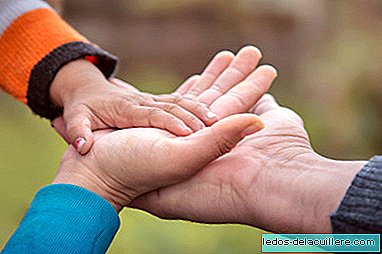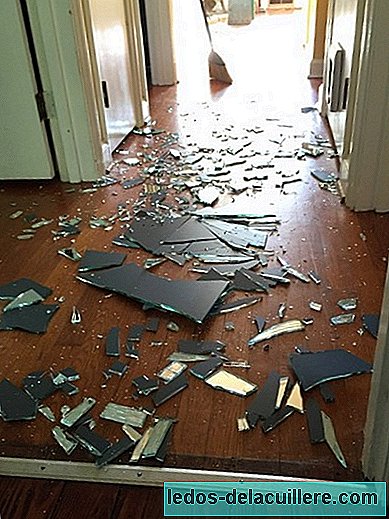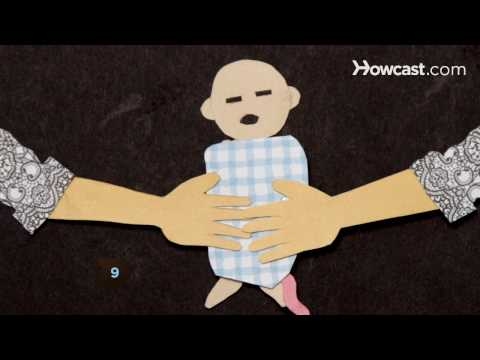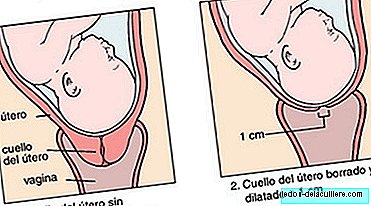
The media have echoed an exceptional case: that of a girl, adopted in India in January, which has been delivered by their adoptive parents to the Aragonese Institute of Social Services of Zaragoza, because he is really 13 years old and not seven as his papers indicated.
It breaks our hearts to think about the grief that this little girl must be suffering when she feels rejected. Although it has not had to be an easy decision for parents, after so many years hoping to have a child and then decide to break the relationship.
Although most international and national adoptions have a happy ending, there is also a small percentage of cases that end badly.
Benedicto García, coordinator of the CORA Adoption and Reception Federation, and adoptive father of a girl in India and a boy in Spain, answers our doubts about the case of the Zaragoza girl in particular and international adoptions, in general .
The first thing that explains is that It is not possible to establish a specific number of how many adopted children are 'returned' by their parents, since the procedures are the responsibility of each Autonomous Community and there is no national statistic. "But there are children who come from other countries whose parents give up their guardianship, a small percentage that can be between 3-5 percent of adoptions."
What is the reason why these parents from Zaragoza give up the guardianship of the girl?
When there is a situation in which family life is unfeasible, a parent (no matter if he is adoptive or biological) can go to the public body of the Ministry of Social Services of his Autonomous Community, to renounce the guardianship of his son.
The reasons that these adoptive parents have alleged are unknown, but it is assumed that their resignation before the Childhood and Adolescence Service of the Aragonese Institute of Social Services of Zaragoza (IASS), is because the girl who was adopted In January (although he arrived in Spain in March) he is really 13 years old and not seven as reflected in his adoption papers.
"And this may be a possibility, since when a child arrives in their country of destination, their parents perform all relevant pediatric examinations. And one of them may be bone measurement to determine exactly their biological age."
"It must be understood that in most adoption countries the information that is available about 'adoptable children' is really scarce, so it is logical that there may be a certain age difference between what is estimated and reality. they are small irregularities that are not normally done in bad faith, but for lack of means. "
"But in this case, the difference is so great that it is logical that the Indian government is investigating to really see what has happened."
According to the article published in El Heraldo de Aragón, the adopting couple contacted the Central Agency for Adoption Resources (CARA), stating that "They were deceived with respect to the real age of the girl, the process of adoption of the child was given giving erroneous information".
This was stated by Deepak Kumar, general director of CARA, which states that a committee has been formed to find out if the Udaan adoption agency, located in the central Indian state of Madhya Pradesh, lied at the age of the girl, as affirm the parents.
In fact, the newspaper on-line has published that “The little girl was in school for three months in a private center in the Aragonese capital in 2nd grade, a course that corresponded to her for her 'supposed' 7 years”.
Whose responsibility is it in an international adoption?

Of the different agents involved. The first thing parents do is to contact an authorized Spanish adoption agency (ECAIO) who will provide the couple with a certificate of suitability, which establishes the country of adoption and the age range of the child for whom they are eligible .
That agency sends the adoption request to the agency in India (or another country, as the case may be) and there, when they verify that there is an adoptable child that meets these characteristics, they inform the Spanish agency.
If you approve the file, it is passed to the Social Services Agency of the Community that conforms or not its approval. If positive, the Spanish agency informs the family that there is a child assigned to them, that they are the last to decide whether or not they want to take care of the child.
In this specific case irregularities with age seem to come from the adoption agency at origin, which is actually an orphanage, although administratively it is called adoption agency. According to the Herald of Aragon, there is already at least another similar complaint against this center. "
What will happen to the girl?

"The situation is really complicated. When a minor is adopted in India, he arrives in our country as a Spanish citizen and loses his Indian nationality."
Hence, the girl remains in the Observation and Reception Center of Aragon while institutions in India and Spain work to find alternatives.
"I do not deny that an agreement can be reached for the girl to return to her country, but it is very exceptional and typical of this case because of the media impact she is having, since she is full-fledged Spanish and her relationship with the country of origin is past. "
Failure to reach an international agreement, the girl will remain in 'residential foster care' while a possible family foster care is resolved, for which there must be an appropriateness and a process that can last for months.
There can also be a new adoption in Spain, following national procedures, since it is Spanish. And while the resolution arrives, it will be the social services who assess the possibility that the girl receives therapy to overcome these moments, like any Spanish child in foster care.
"But nevertheless, The best solution would be to return to your home country. Here he arrived in March, so his social roots are surely not established. Nor does he know the language or customs, while in India he has lived 13 years of his life and speaks the dialect of his State. But, at the administrative and judicial level, it is difficult. "
Even so, there are possibilities, since the Indian Minister of Development of Women and Children, Maneja Gandhi, wants to take her back to her country, as she wrote in her Twitter account:
"It is very unfortunate that an adopted girl has been abandoned in Spain. I have asked our ambassador in Spain, D.B. Venkatesh Varma, to return her immediately to India, where we will ensure her reintegration and custody."
It is very unfortunate that the adopted girl has been abandoned in Spain. I have requested our Ambassador in Spain, Sh. D.B. Venkatesh Varma, to immediately send her back to India where we will ensure her rehabilitation and safe custody. pic.twitter.com/yH9NXGsClu
- Maneka Gandhi (@Manekagandhibjp) August 28, 2018
What is the situation of the adoptive parents?
When families return from their country of origin, they have psychological support, which is often called 'post-adoption sessions'. Its duration and dynamics will depend on the Department of Social Services of each Autonomous Community and I knew how to have a cabinet of psychologists and social workers, who advise parents and advise on the adaptation needs of their child. "In most cases those sessions are insufficient."
"As for the possibility of re-adopting, they will not be able to do so immediately, since they are still grieving over a dramatic situation. After overcoming it, they must go through another official assessment that verifies if they are still fit to adopt. And if so , start over in Spain or internationally. They can combine both processes, but not make two applications abroad at the same time. "
"In any case, the decision that has led them to give up their daughter has had to be really hard for them too, because they may not be able to see their dream of becoming parents come true again."
Today in Spain they are taking place 10 percent of international adoptions that were 10 years ago. We talk about about 600-700 adoptions a year. The reasons?
"It should be borne in mind that although in the countries of origin many children are seen living in the streets, abandoned, they cannot be adopted. A child will only be 'adoptable' if it is certain that there is no close family member who can be made charge of him. "
"Further, national adoptions have priority They do occur, and children who go on to international adoption are older (7-8-9 years) or have physical or psychological problems. They are what are known as 'with special needs'. "
We talk about that The adoption process can last between 5 and 7 years.
But Benedict Garcia, as coordinator of CORA and especially as the father of two adopted children and who are now adults, does not want to conclude his assessments of the news without noting that:
“The big hit is the girl, who at least has already been abandoned twice. It has had to be horrible to get here and see how her new parents also repudiate her. It is a very hard duel that has to be living now, because all, all adopted without exception, live abandonment at some time in their life, however small they were at the time of being adopted. And I say it with knowledge of cause: my son was only nine days old when he came to live with us. ”
Photos | iStock












